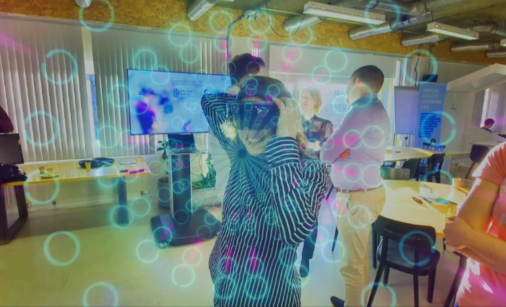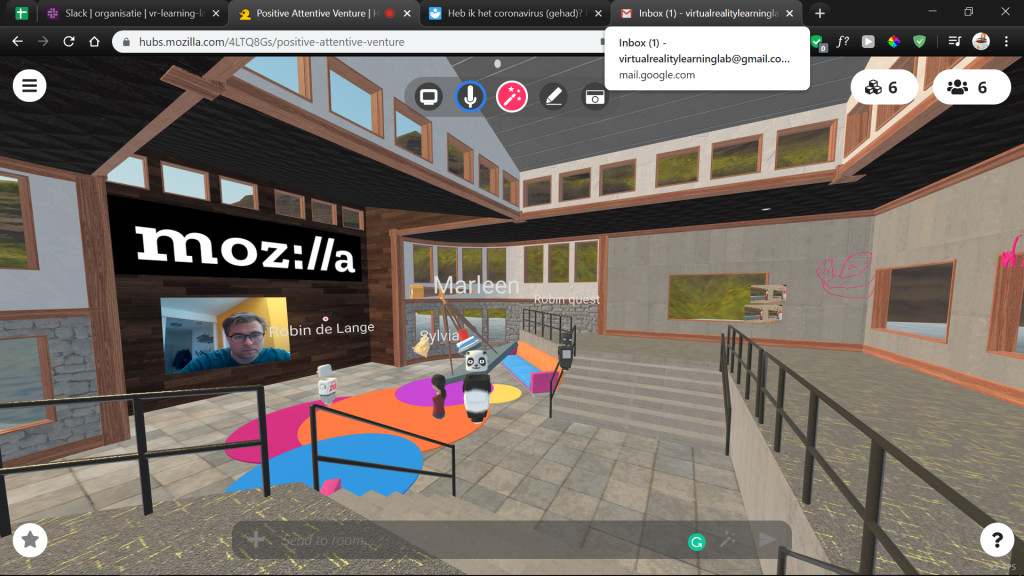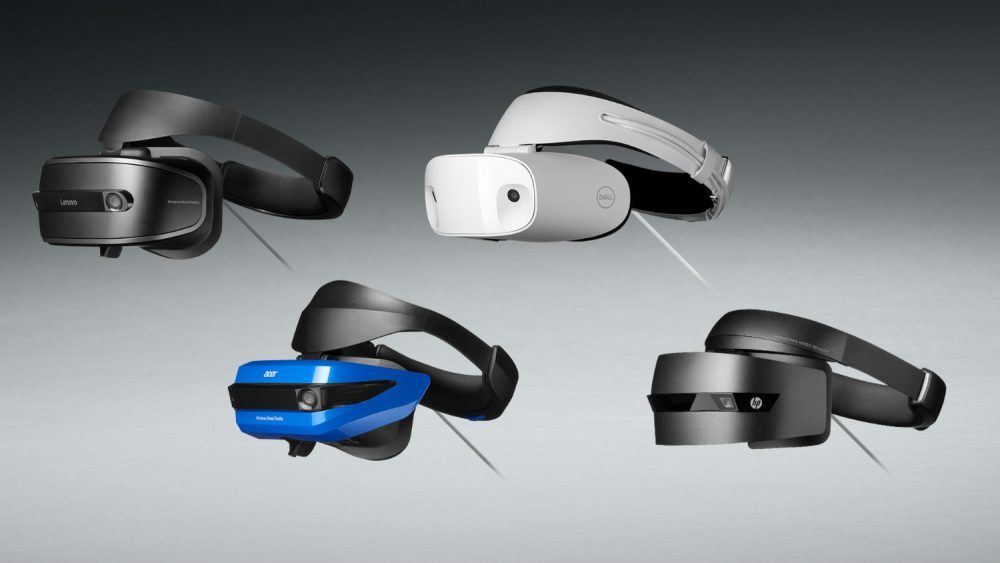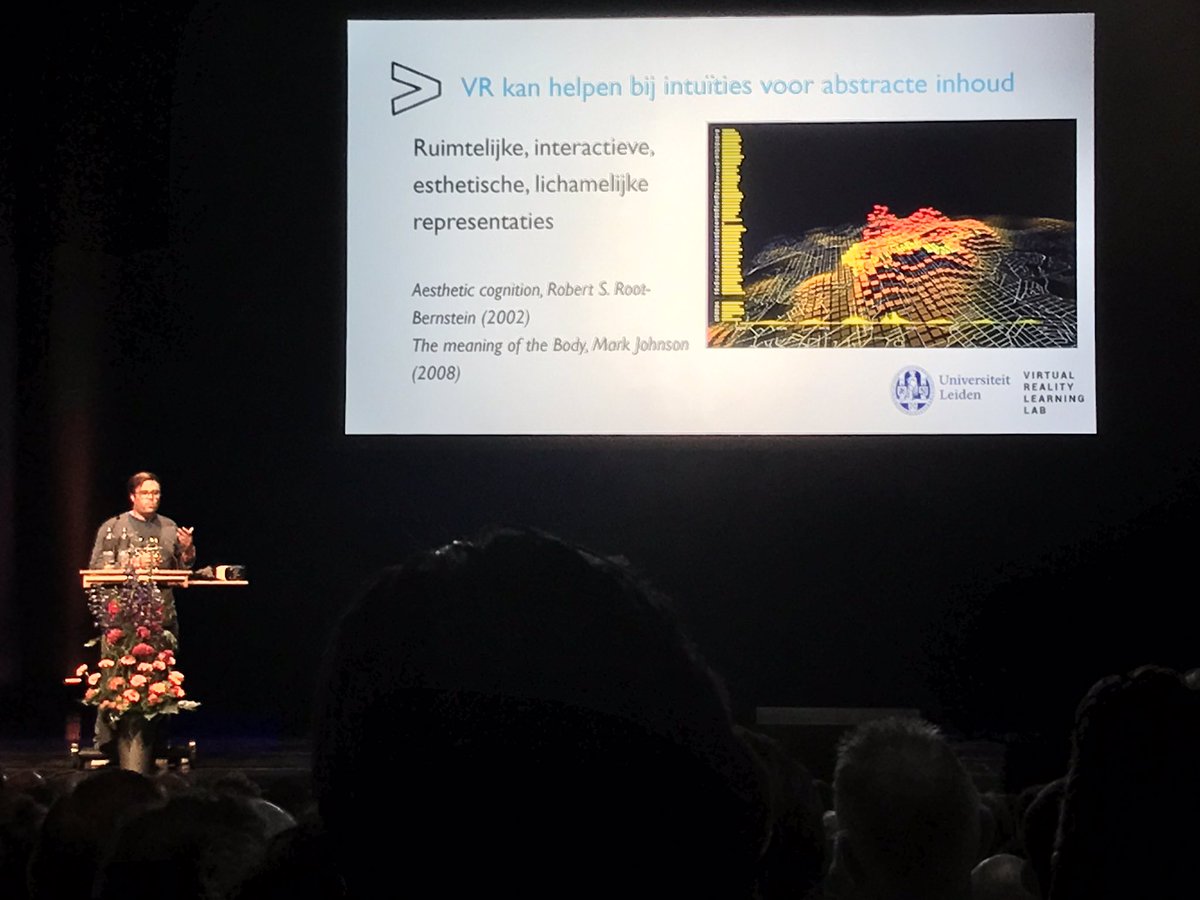AI Photobooth
An exciting addition to your event
Photobooths are for capturing happy moments. With family, friends, or colleagues.
Our AI Photobooth starts out similarly, but then unexpected things happen. You are suddenly somewhere else. Or even someone else. And what happened to your group?
With this installation, you will be able to experience the strange possibilities of generative AI. And by giving you more control and insight into the process, you will come to understand the models behind it better.

What does the AI Photobooth look like at an event? This video provides a clear glimpse!
We are constantly improving this installation to make it even more appealing. Our web page and images are therefore not always completely up to date.
Clients for the AI Photobooth











The experience
Stap 1: take a picture
The experience starts with taking a photo. On your own– or even more fun – with your family, friends or colleagues.

Step 2: give the AI instructions
The next step is choosing different elements for your prompt. And you can choose how close the AI should stay to your original photo.
Then you put the AI to work and see the result. During this progress, we explain the various steps the AI takes.

Stap 3: take your print
At the end, you receive a print of the entire process!
With our professional printer, visitors get their photo within half a minute.
Extra photos are not a problem and are always included.

AI technology
For generating the images, we use, among other things, StableDiffusion and Controlnet. With these tools, we can generate photos based on the picture the user takes. And we can effectively show what actually happens behind the scenes.
Making AI technology more understandable is a core goal of this installation.
Organisation
Guidance & transport
The AI Photobooth is guided by our tech instructors and event facilitators who are technically experienced, engage visitors enthusiastically, and initiate conversations about AI.
The planning and organization of this installation are managed through the core team of the VR Learning Lab.
Tailor made prints
- Your logo en slogan on the prints
- Choose which options are available for users: prompts, styles and settings
- Pick how curious or polished the images should be
- Collect and share the images in fun ways!














Book the AI Photobooth
Are you interested in this installation? As an attention grabber during a conference, cultural festival or other event? Feel free to request a quote without any obligations.
Maybe you want to combine it with a workshop, or perhaps you want to place the installation somewhere for a longer period of time. Please feel free to contact us about these things!


Lease
Would you prefer a permanent or long-term AI Photobooth at your location, including maintenance?
We can design and build a custom AI Photobooth, specifically for you. Please specify your preferences in the request form.
We’re also open for leasing to international partners who want to bring the AI Photobooth to events in their region.




Infinite AI Gallery
Often, we combine the AI Photobooth with our Infinite AI Gallery. The installations complement each other and attract attention in different ways.
Also cool: showcase your AI Photobooth photos in the Infinite AI Gallery!
Future Arcade
For schools, libraries and other educational organisations
Do you want to expand the AI Photobooth into a pop-up museum filled with installations about the future?
For education, we have so many projects that we gather them under the umbrella term Future Arcade.











































